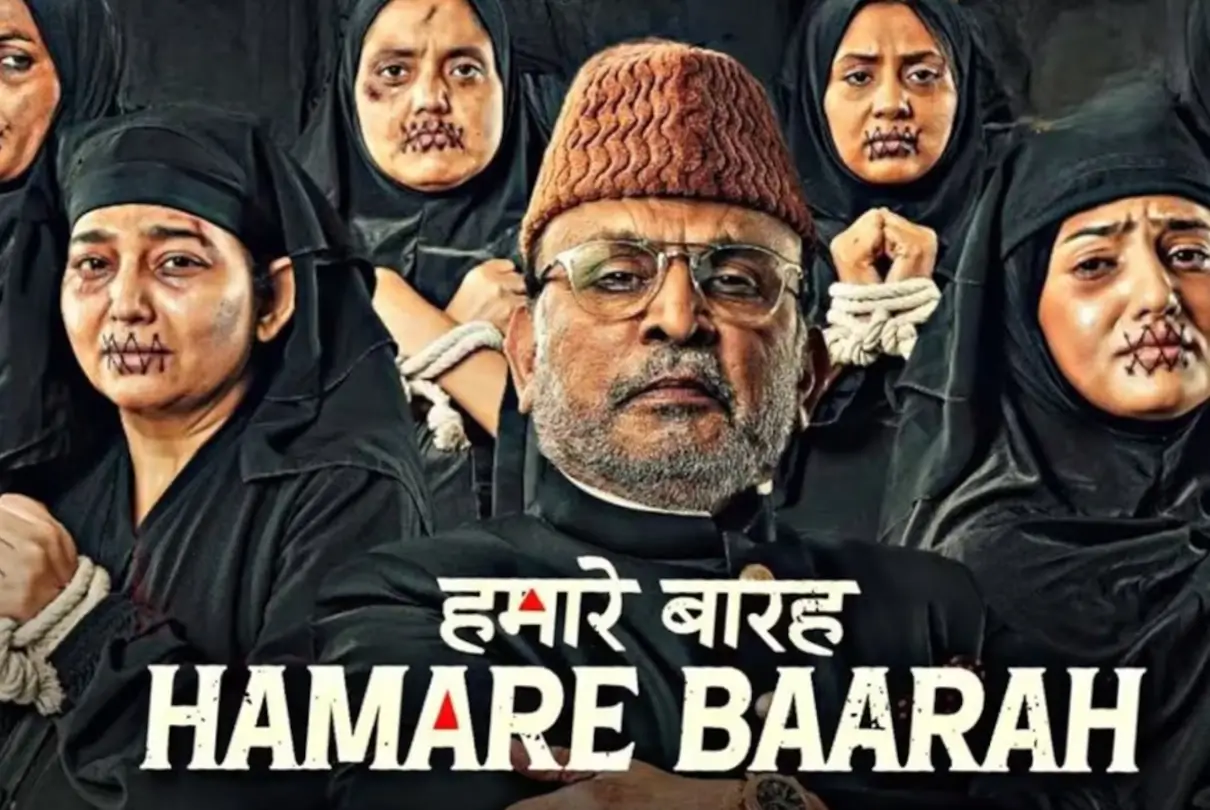Physical Address
304 North Cardinal St.
Dorchester Center, MA 02124

The Annu Kapoor-starrer “Hamare Baarah” has faced a barrage of controversies even before its trailer was released. The film, initially scheduled to premiere on June 7, encountered a major legal hurdle when the Bombay High Court issued a stay order on June 5, delaying its release until June 14. This decision was based on objections raised about certain dialogues in the film. However, in a twist of events on June 7, the High Court permitted the film’s release after the filmmakers agreed to remove the dialogues deemed objectionable by the petitioner.
An industry insider described the situation as unprecedented, noting, “This is unprecedented or maybe it’s a rare instance wherein a film passed by the Central Board of Film Certification (CBFC) has been asked by the Court for more cuts. Usually, when anyone went to Court to stall the release of the film, the petition usually was not entertained, citing that the film has been cleared by the Censor Board.” This highlights the rarity of the court’s intervention post-CBFC approval, emphasizing the unique nature of this case. Also Read- Pap Reveals “shah Rukh Khan Was Mad at Media for What They Did to His Son” Know Here
According to Live Law, the Court maintained that allowing individuals to stall the release of movies duly certified by the CBFC could set a dangerous precedent. The court stated, “We are of the view that if an individual such as in this Petition is permitted to stall the release of movies which have been duly certified by the CBFC it would encourage holding film producers to ransom.” This statement underscores the court’s concerns about the broader implications of permitting such petitions.
Reporters obtained the cut lists approved by the CBFC on June 7, which detailed three specific cuts in the film. At the very beginning, the slogan ‘Allah hu Akbar’ was muted. Other censored dialogues included ‘Shauhar mazaaz-e-khuda hota hai aur mazaaz-e-khuda ke khilaaf jaana kufra hai; kufra ki sazaa maut hai’ and ‘Aurat salwar ke naade ki tarah honi chahiye; jab tak andar rahegi, behtar rahegi’. These dialogues were considered offensive by the petitioner and were thus ordered to be removed to facilitate the film’s release.
The petition, filed by Azhar Basha Tamboli, argued that the film violated the provisions of the Cinematograph Act, 1952. Tamboli contended that the film portrayed married Muslim women as having no independent rights due to a misinterpreted verse from the Quran. The petitioner accused the filmmakers of misreading the said verse, thereby perpetuating harmful stereotypes. Also Read- Ankita Lokhande’s Team Denies the Reports of Ankita Rejecting Karan Johar’s Film Student of the Year
“Hum Do Hamare Baarah,” the film’s original title, was changed following the Revising Committee’s (RC) suggestions. The committee also recommended that the film adopt a more ‘women-centric’ approach, include a disclaimer, and provide references to the CBFC regarding dialogues on ‘women marriage’ in the Quran and Islamic culture.
Further edits requested by the CBFC included replacing the phrase ‘Bazaaru Aurat’ and substituting ‘Islam’ with ‘mazhab’. A dialogue spoken by a Maulana in the film, ‘Apni Kheti Karo …. Jyada Se Jyada Musalmaan Paida Karo’, was also deleted. Additionally, another controversial line, ‘Gaay Ka Moot Pilayenge Aur Hindu Banayenge’, was removed, and the word ‘f***ing’ was muted. In the dialogue ‘Maa ko Allah se upar darja diya dai’, the word ‘Allah’ was also muted.
These numerous changes reflect the contentious nature of the film and the sensitivities involved in its content. The legal challenges and subsequent edits underscore the ongoing tensions between creative expression and societal norms, particularly in the context of religious and cultural depictions in cinema. The Bombay High Court’s involvement in this case marks a significant moment in the ongoing debate about censorship and artistic freedom in India’s film industry. As “Hamare Baarah” navigates these complex issues, it remains to be seen how audiences and critics will respond to the final version of the film.